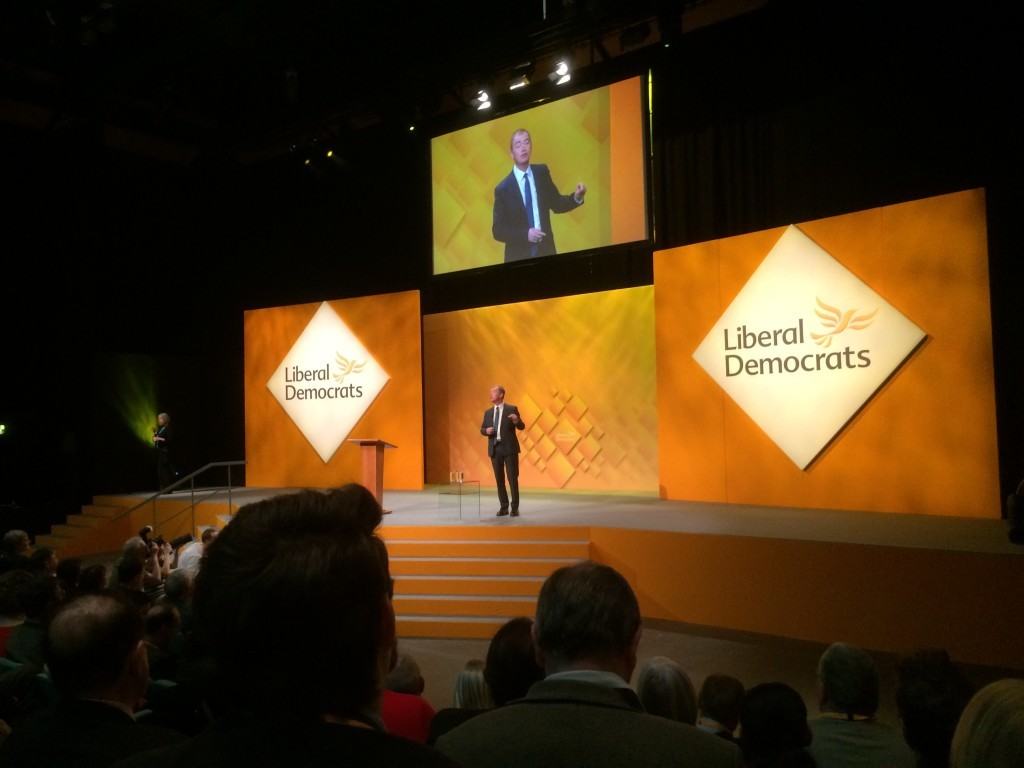I had thought things were going Remain’s way, after my near certainty of last week that Leave had won. A day helping get out the Remain vote in Wandsworth and Lambeth borders (mainly alongside Conservatives) helped cement that feeling. The vote for Remain there was 75% and over. But the backlash from the rest of England (aided and abetted by Welsh voters) was too great, and we ended up with a decisive vote for Leave. I’m still in the very early stages of grief for the country I love. British politics has suffered an earthquake. I want to offer some first thoughts about how the different parties should respond.
The Conservatives first. As my experiences here in Wandsworth shows, they are bitterly divided. But they will now have to rally behind the result and be the unequivocal party of Brexit. David Cameron was clearly right to resign, albeit at a leisurely pace. It is very revealing about those that supported Leave that so many of them thought he should stay. It bespeaks denial about the gravity of what they have done. But Mr Cameron would have been a prisoner and puppet as Prime Minister and party leader; that is not what the situation demands. Personally I think Boris Johnson should take over; his leadership may well have been decisive for Leave; he should be made to answer for its consequences. He may not have enough support amongst Tory MPs, though. But he does have momentum.
There is a clear opportunity for the Tories tok benefit from the bitter divisions in England and Wales. George Osborne’s wish for the party to build bridges with voters outside London now looks altogether more credible. Quite what this means in policy terms is less than clear. But they will need a clear focus on limiting immigration to begin winning the trust of Brexit voters.
That they have a chance to do so arises from the problems of the political left. Labour’s leadership backed the wrong horse in this race, mainly through honourable and honest belief. But their core support now comes from educated public sector workers and minority ethnic groups. The gap between this core and their previously loyal working class voters outside London has turned into a gulf. This has become a strategic problem.
I believe that the best thing for them is to stick to their beliefs keep up the attack on the advocates of Brexit. They will need to play lip service to respecting the will of the British people, but what they really need is for the Conservatives to fall apart under the stresses of trying to follow Brexit through. A period of institutional chaos is about to unfold; they need to be the party of buyer’s remorse and even “told you so”. This should be combined with a bold move to the political centre, perhaps scooping up disillusioned Conservatives.
But they have a leadership problem. Jeremy Corbyn has been criticised for being a lacklustre advocate of Remain, because of his half-hearted support for the idea. I have a feeling that the problem is much deeper. I don’t think he is cut out for hard political campaigning of any kind. On the radio this morning he sounded like a damp rag; he offered no ideas about what the country should do next. The Conservatives will have to be in bad shape indeed if they can’t beat him in a general election. And it is not just leadership. I would take an amazing act of political skill to persuade Labour members back to the centre ground. But not impossible.
Ukip have been dealt an interesting hand. They have done much to bring this situation about, and will doubtless gain Kudos. They must continue their pivot towards disaffected white working class voters, and peel them away from Labour. But it will be a hard road under Britain’s electoral system. Their power base in the European Parliament is about to be closed down. That this will hurt so badly will be amongst the many ironies of the vote.
And my party, the Liberal Democrats? The party continues its flirtation with irrelevance, and Brexit for these enthusiastic supporters of the EU makes it worse. But it has much stronger party infrastructure than Ukip; it has more MPs, more councillors and more Lords. They should benefit from the manifest troubles of the Labour and Conservative parties, but it is hard to see exactly how. They do not offer an inviting prospect for disillusioned centrist Labour and Tory MPs. I don’t see that they have much choice but to slowly rebuild on core liberal values, and make a strong appeal to younger voters. A lot will have to change to make this credible; not least it needs an influx of women and ethnic minorities into its leadership positions. I will write more on what the party should try and do another time.
And the Greens? They, too need to compete hard for that younger vote, where they have an edge over the Lib Dems. They have a very interesting strategic choice though. Do they continue with their leftwing, pro public sector lurch, away from their environmentalist roots? Jeremy Corbyn seems to have shot that fox, and offered a home for these voters in the Labour Party. But if Labour start a serious march to the centre, this gap might open up again. But if Labour continues to be a prisoner of its new members this route towards relevance will be blocked.
And the SNP? They have been presented an opportunity for independence and another referendum. But Brexit poses challenges for Scotland. A Scotland inside the EU and an England outside poses some major headaches. Many of these are about to be rehearsed on the island of Ireland. It may be hard for the SNP to create an attractive prospectus.
And what is the best thing for the country? I see the vote as a cry of pain from the politically excluded. This has a very ugly face, and I fear the rise racism and xenophobia. But all politicians should heed that voice. We must develop a new economic model that brings the excluded back in. That is the only way to bring liberalism back into fashion. If the Brexit vote hastens the development of such a new model, it will have been a good thing. All of the parties, apart from Ukip perhaps, show some signs of understanding this but are bereft of clear answers. But I fear that instead too many politicians will draw the conclusion that they should pander to dark side.


